
St John of God Health Care has appointed former Victorian Department of Health and Human Services CIO Grahame Coles as its new group director of digital and technology.
Mr Coles was most recently CIO of the Tasmanian DHHS. He has also previously worked in community services, agriculture, food, manufacturing and retail industries.

Pulse+IT's weekly round-up of international health IT news for the week ending March 3: First faxes, now pagers out at NHS, Amazon's pharmacy plans, 10-yr $16b EMR, Canadian snoops, Alexa at Cedars-Sinai, cardiologists advice on Apple ECG, digital pathology, app shares data with Facebook, YouTube action on anti-vaxers, Apple Health VP, eHealthNews South Africa shuts down
Secretary of State for Health and Social Care wages war on pagers
Digital Health News ~ Hannah Crouch ~ 23/02/2019
NHS Trusts will be required to phase out pagers by the end of 2021, with all hospitals expected to have plans and infrastructure in place to ensure this is possible by the end of September 2020.
Amazon continues its push into the pharmacy business
CNBC ~ Christina Farr ~ 28/02/2019
Amazon has tapped 14-year company veteran Nader Kabbani to run its new pharmacy business, including the team that came in through last year's acquisition of PillPack.

In a nice bit of timing, Pulse+IT asked readers in our poll last week whether, following Greg Hunt's ill-advised comment that he could guarantee the My Health Record won't be hacked, you thought health data security could ever be guaranteed. Nope, the vast majority of you said, and just as well as more details emerged about the ransomware attack on the Melbourne Heart Group cardiology practice in January.

Digital services corporation Atos Australia has won a five-year, $124.3 million contract with WA's Health Support Services to provide data centre and cloud services that host clinical and non-clinical applications for WA Health, taking over from incumbent Fujitsu.
The deal is the first tranche in the $408m HealthNext project, WA Health's part of the $3 billion GovNext-ICT program that will see new infrastructure rolled out to support the WA public sector.
Atos is one of three suppliers on the GovNext-ICT panel; the other two are Datacom and NEC.

The estimated 17 million Australians who chose not to opt out of the My Health Record are now able to access the system if they have a MyGov account.
The Australian Digital Health Agency has quietly announced the records are available following a three week-long reconciliation period after the opt-out period ended on January 31.

More than half of GPs and 60 per cent of specialists cite challenges in accessing patient information from other doctors as a common reason for ordering unnecessary tests or treatments, a new survey from Choosing Wisely has found.
Doctors also cite patient expectations, potential for medical litigation and uncertainty of diagnosis as common reasons why health professionals request an unnecessary test, treatment or procedure.
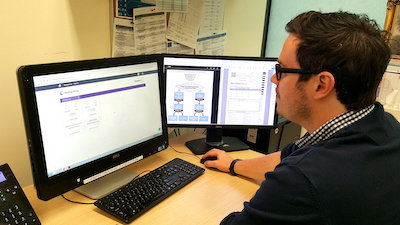
Ballarat Health Services (BHS) is about to open a new cardiology pharmacist outpatients clinic delivered by telehealth to patients living with heart disease in the Grampians region of Victoria.
Dubbed the TOPCare Cardiology clinic, it will allow patients to discuss their medicines and their response to therapy with a pharmacist, who will then create a summary of their current medicines that the cardiologist can consult before the patient's next appointment.

The NSW Agency for Clinical Innovation (ACI) is considering setting up a shared data repository for the state's 20 specialist pain clinics that would include patient reported outcome measures and real-time feedback to clinicians.
It has gone to market with a request for information on a data collection, quality monitoring and improvement system that would include data repository development, an interface with a patient reported measures questionnaire so that consumers can directly enter information, and the secure management and analysis of data exported from pain clinics.

New Zealand researchers are working on a new clinical decision-making tool that will be able to help clinicians weigh up the benefits and harms of long-term aspirin use for the prevention of cardiovascular disease on individual patients.
Researchers from the University of Auckland’s Faculty of Medical and Health Sciences and Middlemore Hospital have developed bleeding risk models for men and women that are able to provide a personalised estimate of a patient’s risk of a major bleed.

The Health Informatics Society of Australia is calling on allied health professionals to provide feedback on a draft position statement on the role of the allied health sector in digital health and informatics.
HISA has been working with Victoria's Allied Health Working Group to develop the position statement, which calls for the creation of leadership roles in allied health informatics and the development of informatics education for allied health.

ASX-listed medical centre group Healius has gone live with its new Imaging Core Application Refresh (iCAR) project at 30 sites, and is also turning its attention to technology-led growth in the day hospital market.
Healius, formerly known as Primary Health Care, is rolling out Pro Medicus' Visage radiology information system (RIS) and a new picture archiving and communication system from Intelerad at its 140-odd diagnostic imaging centres.

Cardiology practice Melbourne Heart Group says no patient's privacy was compromised following a ransomware attack that encrypted its patient data in late January.
Healthcare Info Security is reporting that the ransomware was Hermes 2.1, which is mostly commonly spread using spam emails.

Pulse+IT's weekly round-up of international health IT news for the week ending February 24: Facebook faces health privacy complaint, scripts faxed to hotel, sharing Google health search data, AI good behaviour, US ONC proposed rule on FHIR, HIMSS level 7 satisfies, doctors emailing patients, privacy and security risks top health IT concerns
Congress scrutinizes Facebook health data privacy complaint
Healthcare Info Security ~ Marianne Kolbasuk McGee ~ 20/02/2019
That complaint also called attention to an incident when a security researcher was able to download the names and other personal information of over 10,000 cancer patients who were participating in a Facebook health group.
Prescription information ‘accidentally faxed’ to hotel group
Digital Health News ~ Andrea Downey ~ 19/02/2019
The PSNC reported faxes had come from GP practices and community pharmacies across the country and included dispensing tokens and requests for medication.

The Australian Digital Health Agency and the Department of Health put on a brave face at Senate Estimates this week when they popped up yet again to be interrogated about the My Health Record. A couple of hours earlier ADHA had quietly released details on the number of people who had opted out of the system, and at 9.9 per cent of the eligible population, representing about 2.5 million people, it was not a figure they seemed keen on shouting from the rooftops.
Their defence of the number seems to have changed as well. Asked how the figure of 9.9 per cent opting out compared to international experience, ADHA CEO Tim Kelsey told Senate Estimates that as Australia was leading the world with a system that provides patients with control over their record, there was nothing really to compare it to.

Federal security agencies are investigating a ransomware attack at Melbourne Heart Group, a specialist cardiology practice located at Cabrini Health's hospital at Malvern.
First reported by The Age on Wednesday, the attack appears to have occurred three weeks ago and involved the encryption of the practice's medical records with a demand for a ransom in cryptocurrency.

Technology consultants ThoughtWorks Australia has won a contract to develop a prototype for a proof of concept trial of a universal health translator solution for eHealth Queensland.
The aim is to develop a digital medical translation solution to supplement Queensland Health's human interpreters when they are unavailable.

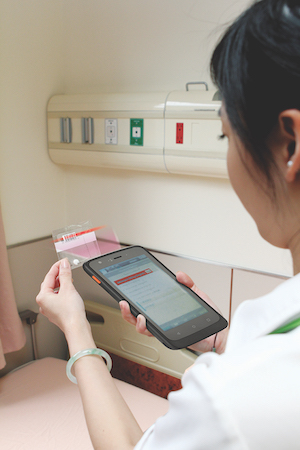
Taiwanese device manufacturer MiTAC has entered the healthcare market in Australia and New Zealand with a range of rugged Android-based tablet computers aimed at the hospital and aged care markets.
MiTAC, which owns GPS device brands Navman and Magellan, will be taking on market leaders Panasonic, Toshiba and Xplore Technologies in the market, aiming to compete on price and functionality.

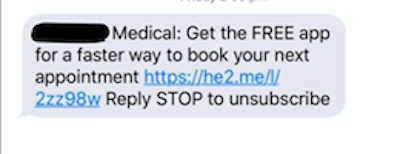
Online appointment booking service HealthEngine has rejected claims that it has been sending text messages to patients encouraging them to download its app without the consent of their general practice.
A medical centre group in Victoria says three of its patients received a text message purporting to be from one of its clinics immediately after booking an appointment through the practice's own booking system, and none of them had registered with HealthEngine.
HealthEngine said the texts were part of its in-practice patient communication service, which the practice would have given written or verbal consent to use when it signed up with HealthEngine.
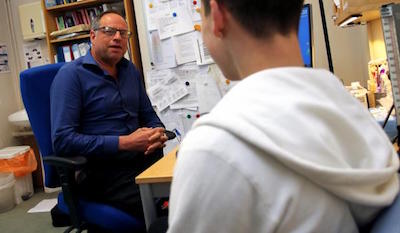
Almost 10 per cent of eligible Australians have opted out of the My Health Record, a big increase on the three per cent reported during the initial opt-out period in September last year.
The Australian Digital Health Agency has today reported that the opt-out rate is 9.9 per cent following the end of the extended opt-out period on January 31.
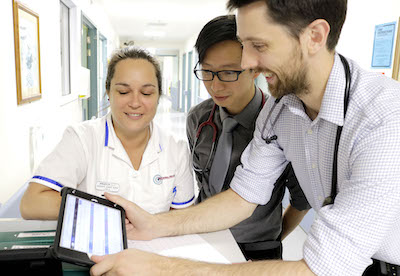
ASX-listed health technology vendor Alcidion has rolled out its FHIR-supported Miya Precision patient flow and bed management platform at MidCentral District Health Board in New Zealand in what is the first implementation of the next generation of Alcidion's technology.
The system is now live in 17 wards and the emergency department at Palmerston North Hospital and two wards at Horowhenua Health Centre.

InterSystems' new IRIS for Health data platform is now available to deploy on all of the big cloud services, including Amazon Web Services, Google Cloud and Microsoft Azure.
InterSystems extended its IRIS platform to include healthcare-specific capabilities last year, adding an extensible FHIR repository and REST APIs.

Clinical and practice management software vendor MedicalDirector insists that its flagship cloud-based product Helix is on track and taking market share, despite some criticism from former employees about the product and a delay in its long-planned roll-out at Healius clinics.
Healius, formerly known as Primary Health Care, confirmed in October last year that despite its intention to roll out Helix to improve efficiencies across its 73-strong medical centre business, it would for the time being implement MedicalDirector3, now called MedicalDirector Clinical, to those practices that weren't already using it.

The Aged Care Industry Technology Council (ACIITC) plans to do an update to its 2017 aged care technology roadmap to help inform a planned submission to the Royal Commission into Aged Care, highlighting how technology infrastructure and systems can have an effect on quality and safety.
The council also plans to announce a permanent, independent chair in the next few weeks to coordinate the sector's technology vision, which will in future include the alignment of the government's My Aged Care system with the My Health Record.
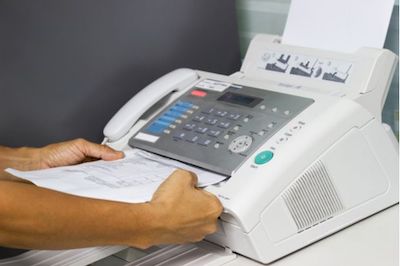
Pulse+IT's weekly round-up of international health IT news for the week ending February 17: Leeds turns to eFax after missing target, Judy Faulkner on Epic UX, US military's Cerner EMR, IBM Watson Health's $50m for AI, WhatsApp channel for HIV, FHIR to be required, Apple Health Records for veterans, Microsoft’s Azure API for FHIR, Cerner's Chart Assist, Slack enters healthcare market
Leeds Teaching Hospitals pilots eFax after missing ‘Axe the Fax’ target
Digital Health News ~ Andrea Downey ~ 13/02/2019
Leeds Teaching Hospitals NHS Trust has fallen short of its “challenging” target to remove 95% of its fax machines by January 1 this year and is now piloting an eFax programme, its CCIO has said.
Epic CEO Judy Faulkner on Apple, docs who actually like their EHRs and Warren Buffett
Healthcare IT News ~ Mike Miliard ~ 13/02/2019
The EHR vendor’s founder also discusses the state of interoperability, cloud computing and today’s sticking points in health IT.

The big news this week came out of the ginormous HIMSS exhibition in Orlando, Florida, which Pulse+IT's resident jetsetter attended for the first time. Mr Jetsetter insists the rumours are scurrilous but we hear he took the mammoth task of visiting the hundreds if not thousands of booths in his stride by touring them at his leisure on a Segway.
Mr Jetsetter reports back that the size of the exhibition and the number of attendees was astounding, with loads of antipodeans in attendance but the Segway doing it tough trying to avoid knocking anyone over. In the end, Mr Jetsetter is of the opinion that the exhibition side of HIMSS is more of a networking opportunity for health IT blokes than anywhere that serious business is being carried out.

The Royal Australian College of General Practitioners has entered into commercial agreements with the Canadian vendor of the Hello Health practice management system but has refused to divulge any details of the arrangements.
Just 25 people attended a series of workshops in six capital cities last year that were promoted by the RACGP for Hello Health to gauge GP feedback on what they would like to see in a potential new PMS.

New Zealand's Ministry of Health has officially awarded a contract to build the much-delayed National Screening Solution (NSS) to Deloitte, the consulting firm having already designed the blueprint for the system.
The NSS, which will support the $78 million National Bowel Screening Programme (NBSP) and eventually the national cervical cancer screening program, will be built using Salesforce technology in conjunction with Deloitte’s Health Connect accelerator, the ministry announced yesterday.


Digital health company HealthShare has gone live with a new pre-consultation clinical questionnaire platform that takes a patient's medical history and symptom list, codes the text into medical terms and then converts it into bullet points that are directly entered into a doctor's clinical notes.
Called BetterConsult, the technology is now live in Best Practice Premier and there are plans for integrations with the other GP clinical software solutions, but it is also suitable for specialist doctors and allied health professionals, with the potential for it to be used for triage in hospital emergency departments being considered.
It is also currently being considered for the massive US market where the documentation burden is legendary, but HealthShare CEO Rami Weiss said it would be suitable globally for any clinician who needs to take a medical history and conduct a consult more efficiently. His team is working on adding more languages, so a patient can fill out the questionnaire in their primary language but the doctor will still receive the output in English.

WA Health is developing an outpatient appointment mobile app and promises to make improvements to ICT systems to better assist GPs making referrals to the public system in a bid to reduce no-shows.
The app will be piloted for three months later this year and will be designed to help patients advise if they can't attend appointments at outpatients clinics or request the appointment be rescheduled.

Microsoft Healthcare has released a specialist bot in its Azure marketplace designed to help healthcare organisations build and deploy AI-powered virtual health assistants and chatbots.
The technology was first introduced as part of a research project in 2017 but is now being released for general use worldwide.

Melbourne-based eye health clinical communications platform vendor Oculo has signed an agreement with US company Topcon Healthcare Solutions to integrate its cloud-based network with Topcon's Harmony, an open source data management app for connecting ophthalmic imaging devices.
Oculo has also built a platform to support Australia's new KeepSight diabetes eye screening program, which will allow optometrists, ophthalmologists and GPs to record patient eye checks and send reminders to people to book their next appointment through a link with the National Diabetes Services Scheme (NDSS).

Eight-three per cent of respondents to a survey on GP use of technology said they were now entirely digital, with no supplementary paper records maintained.
The survey also showed that 73 per cent of GPs work in practices that upload information to the My Health Record, and 30 per cent had accessed a patient’s health information through the My Health Record that would not have otherwise been available to them.
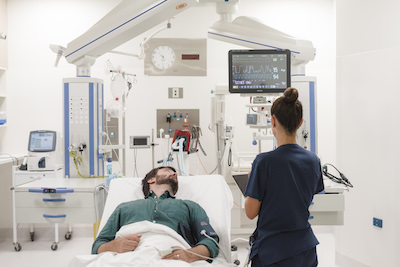
Pulse+IT's weekly round-up of international health IT news for the week ending February 10: Microsoft's eye on health data sharing, Google's EHR aggregation plans, DrChrono's mobile EMR, $57m fine for EMR vendor, GP software panel for Scotland, CommonWell's interoperability offer, HIV data exposed by insurer, telehealth and primary care, VR for MRI
Microsoft pushes forward on healthcare communication and data capabilities
MedCity News ~ Kevin Truong ~ 07/02/2019
The new tools build on the company's Azure cloud platform and allow more efficient and secure communication and sharing of personal health information.
Google patent application offers new details on company's predictive EHR aggregation system
MobiHealthNews ~ Dave Muoio ~ 04/02/2019
The system would aggregate and compile EHR data from multiple centers while using deep learning analytics to warn providers of upcoming clinical events.
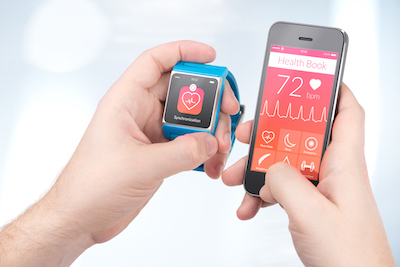
One of our most popular stories this week was Medibank's announcement that the insurer would trial a new health and wellbeing app with its staff before offering it for free to customers and the general public.
Called Live Better, the app will able to combine data from health devices along with wearables like Fitbits and wellbeing apps all in one location. Medibank customers will be offered the incentive of earning points for using the app and achieving goals that can then be used to reduce premiums.

Victoria's Northern Health will roll out Allocate's electronic rostering and attendance management solution this year after the health service decided to drop its outsourced model.
Northern Health will use Allocate's cloud-based solution, which will allow its 5000 staff to access rosters and submit shift or leave requests from their mobile devices at any time.

The Northland and Auckland district health boards (DHBs) will make the jump from their existing Concerto 6 clinical system from Orion Health to the latest version of the software, known as Clinical Portal 8, by early next year.
The two DHBs follow the roll-out of Clinical Portal 8 at Counties Manukau and Waitematā DHBs last year and when complete, will form the largest regional clinical portal in the country.
The end result promises to be a single, connected clinical viewing system that will allow records to be accessed from any Northern region DHB location by authenticated health providers.

Burwood Hospital in Christchurch is trialling a voice-activated patient response tool developed by Deloitte to allow patients to request help by speaking into a smart speaker-like device.
First developed for Prince of Wales Hospital in Sydney to improve traditional nurse call buttons, DeloitteASSIST is being trialled at one of Burwood's older persons' ward and will also be rolled out to its spinal unit and the transitional rehab unit, where patients require more assistance due to mobility issues. They will still have access to the existing nurse call system.
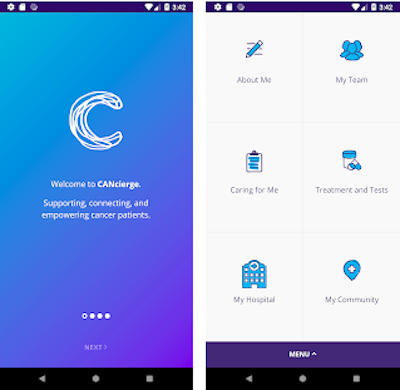
The Calvary Mater Newcastle hospital has developed a concierge app to help patients and carers navigate cancer care in the Hunter New England region.
Called CANcierge, the app allows users to record vital information, make a note of members of their treating team, and find information about chemotherapy and other treatments and tests in one place.
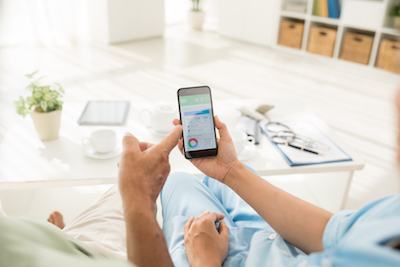
Health insurer Medibank is planning a trial of its new Live Better health app with staff before rolling it out to customers and the general public in the middle of the year.
The app will combine data from most major health devices, wearables and wellbeing apps into one location and allow users to track progress and set goals with others.

PathWest Laboratory Medicine WA is on the market for total laboratory automation systems for its Fiona Stanley Hospital (FSH) and Queen Elizabeth II Medical Centre (QEII) microbiology laboratories.
The new systems are expected to be compatible with PathWest's new laboratory information system (LIS) through a bi-directional interface that will enable patient and sample data to be checked and data to be analysed in real time.
PathWest is replacing its current Ultra LIS with a new system from US firm SCC Soft Computer, which won a competitive $42 million tender in 2016. The Soft LIS is expected to be fully rolled out by the end of the year.
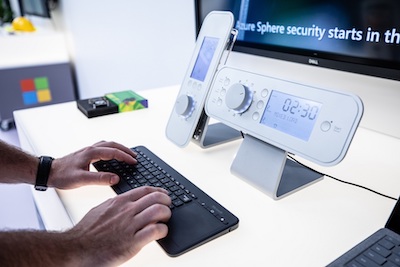
Microsoft has signed a five-year agreement with DXC Technology to work together on bringing both companies' enterprise and public sector clients in Australia to the Microsoft Azure cloud.
The move comes as Microsoft opens a new technology centre in Sydney to demonstrate the effect that cloud and artificial technology could have on clients when deployed in their organisations.

Queensland Health's communicable diseases branch is testing the market for healthcare-associated infection surveillance systems with an eye on potentially purchasing a digital system compatible with contemporary mobile platforms.
The early market approach is not a formal commitment to acquiring a new system, the branch says, but it is interested in a potential solution that has the ability to conduct surveillance on bloodstream infections, significant organisms, surgical site surveillance, outbreaks and occupational exposures.

ASX-listed EMR vendor Global Health will roll out its MasterCare platform to support clinical workflows in mental health, primary care and alcohol and other drug services for the youth justice sector of Justice Health Victoria.
The company also provides MasterCare to manage the records of young people in custody.

Pulse+IT's weekly round-up of international health IT news for the week ending February 3: £5b NHS digital plan for GPs, Singapore’s MyDoc in India, Epic Best in Klas for ninth year, eScripts in South Africa, AI in Canada, Apple partners with Aetna, HIV data breach, FDA to tap real-world data for medical devices
New GP contract includes increased patient access to digital services
Digital Health News ~ Hannah Crouch ~ 31/01/2019
The contract gives practices almost £1bn across five years to help fulfil ambitions laid out in the NHS Long Term Plan.

There was a bit of breaking news late yesterday afternoon and no it wasn't a final, desperate bid to halt the inevitable march of Australia's troublesome My Health Record. It was the resignation of eHealth Queensland CEO Richard Ashby for personal reasons amid intense scrutiny of the procurement of a new patient administration system to replace the very elderly and infirm HBCIS system that has been puttering away for nigh on 30 years.
Queensland has made a few attempts to replace HBCIS, which is based on the old Homer technology that still lurks about in both Australia and New Zealand, including one by InterSystems last decade that was a failure. It has been clear for some years that replacing HBCIS will be incredibly difficult as it is inextricably entwined in many of the systems, old and new, that support the Queensland healthcare system.

Online appointment booking and directory service HealthEngine has re-emerged from last year's public relations woes to launch a free and a premium service for general practices called Patient360.
The all-in-one Essentials package includes free online bookings, appointment reminders, online repeat script functionality and patient feedback, while the paid Premium package includes those features as well as advanced reminders, recalls and a new SMS campaign tool currently being developed called Reach.
HealthEngine, Australia's largest patient-facing online appointments booking service for GPs, had a horror year in 2018 when it was revealed that not only was it over-zealously editing patient feedback but was also supplying patient data to third parties, including personal injury lawyers, for marketing purposes.

eHealth Queensland CEO Richard Ashby has resigned following allegations of a personal relationship with a staff member involved in the $210 million procurement for the replacement of Queensland's aged HBCIS patient administration system.
The restricted tender and shortlisting of Cerner and DXC only for the project has raised many eyebrows. Dr Ashby has been under investigation by the state's Crime and Corruption Commission since last year.
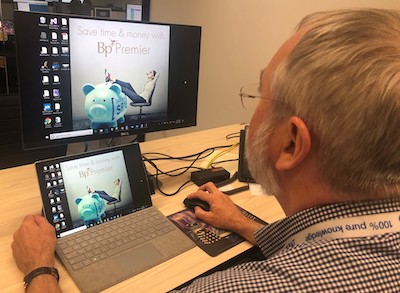
Best Practice Software has released Indigo service pack 1 (SP1) of its Bp Premier clinical and practice management software, featuring what it says are significant enhancements to electronic communications, including consent options and patient enrolment features, and to Bp SMS functionalities.
It also features an integration with the SafeScript real-time prescription monitoring system for Victorian users, along with HealthLink's online directory and HealthShare's directory for eReferrals.

Shayne Hunter, the chief information officer for Capital & Coast, Hutt Valley and Wairarapa DHBs, has been appointed deputy director-general for data and digital at the NZ Ministry of Health.
Mr Hunter takes over from former chief technology and digital officer Ann-Marie Cavanagh, who has been acting in the role since last year.
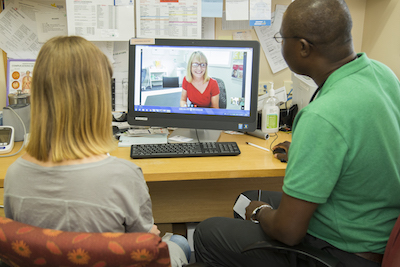
The Australian Medical Association has called on the government to introduce specific MBS rebates for telehealth consultations provided by GPs, along with a quarterly care coordination payment to improve team-based care.
In its annual pre-budget submission, the AMA also called for the proportion of healthcare spending on general practice by the federal government to be lifted from the current eight per cent to around 10 per cent in the longer term.

The Aged Care Industry Information Technology Council (ACIITC) is holding a forum in Sydney next week to discuss industry perspectives on technology and innovation in aged care and how these can inform a submission it plans to make to the Royal Commission into Aged Care.
Public hearings for the commission begin in Adelaide on February 11 with an interim report due by October 31.
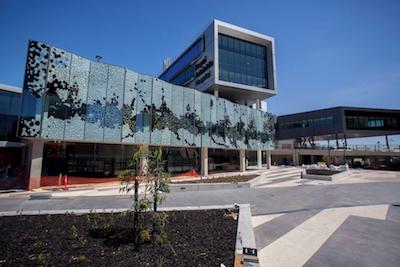
An independent review of South Australia's much criticised Enterprise Patient Administration System (EPAS) has found that the program requires a fundamental overhaul and should not go on as is, with the electronic medical record and PAS elements of the system to be split and the billing module to be dumped and a replacement found.
The South Australian government says it will “transition” from calling it the EPAS project and split it into two projects with an upgrade to the current products – the Sunrise EMR and the Allscripts PAS – and trial them at two sites before making a final decision on whether to continue with the Allscripts suite.

NSW Health plans to pilot its new incident management system based on the Datix Cloud IQ solution at two local health districts later this year.
Datix has been awarded a five-year, $12.38 million contract to implement the solution, which is replacing the legacy Incident Information Management System (IIMS) that was revealed at a parliamentary public accounts committee inquiry to be on its last legs.
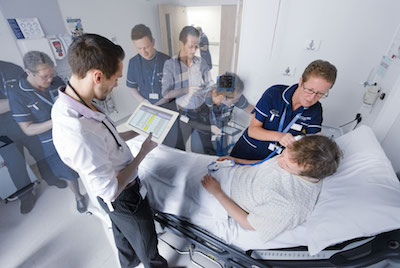
Alcidion CEO Kate Quirke has been appointed group managing director of the ASX-listed health technology company, with co-founder Ray Blight moving to a new role as non-executive chairman.
Mr Blight, who founded the company in Adelaide with health informatician Malcolm Pradhan in 2000, led the company through its purchase of health IT services and integration specialist MKM Health and affiliate Patientrack last year.

Pulse+IT's weekly round-up of international health IT news for the week ending January 27: European EHR, doubts over NHS long-term plan, instant alert app for flu, Apple and Epic? Google's influence on eHealth, health information exchanges struggle, Highland telehealth, Canada prevents virus spread, US hospital interop, doctor burnout
First EU citizens using ePrescriptions in other EU country
eHealthNews.eu ~ Staff writer ~ 24/01/2019
The first EU patients can use digital prescriptions issued by their home doctor when visiting a pharmacy in another EU country.
Poll reveals scepticism surrounding NHS Long Term Plan digital milestones
Digital Health News ~ Hannah Crouch ~ 18/01/2019
More than a quarter of Digital Health News readers believe none of the eight digital milestones in the NHS Long Term Plan will be achieved on time.
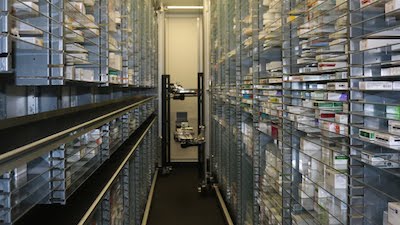
As Australia gets ready for the vast bulk of its population to be able to access a summary of their health data and share it with their healthcare professionals through the My Health Record, the European Union is getting ready to create what is in effect a European-wide Electronic Health Record through an agreed data exchange format.
This week, Finland and Estonia became the first EU countries to allow digital prescriptions issued in one country to be retrieved electronically when the patient is in the other country without having to present a written script.

The RACGP's practice technology and management committee has released a report outlining what it sees as minimum requirements for clinical software used in general practice, with the next step to develop a detailed minimum set of standards.
It covers requirements for health record content, communications, collection of patient data, follow-up capabilities such as recalls and reminders, and viewing patients' My Health Records from within clinical systems.

Amazon Web Services (AWS) has been granted protected level certification by the Australian Cyber Security Centre (ACSC), allowing users to store highly sensitive data in its Sydney region data centres.
AWS joins Microsoft – which received the certification last year for Azure and Office 365 – along with Dimension Data, Macquarie Telecom, Sliced Tech and Vault Systems, which also have the capability.

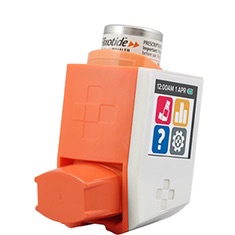
Connected medical device manufacturer Adherium has undergone a major restructure, losing ts group CEO and chief financial officer and announcing a reduced presence in the US market.
NZ-headquartered Adherium, which listed on the Australian stock exchange in 2015, makes a range of sensors called Smartinhalers that attach to asthma and COPD inhalers to help improve medication use and adherence.

The Australian Digital Health Agency (ADHA) will tomorrow activate a function within the My Health Record system to let consumers permanently delete their record.
Previously, consumers were only able to cancel their record. Those that have been cancelled in the past will now be permanently deleted from the system, an ADHA spokesperson said.

Geelong-based Barwon Health has issued a request for information for a new queue flow management system including self-service kiosks and wayfinding that it plans to trial at its new Barwon Health North facility in Norlane.
The $33 million Barwon Health North is expected to open mid-year and will include an urgent care centre, medical imaging, pathology, pharmacy, consulting suites and renal dialysis services.

Clinical communication device vendor Vocera has released a new category of wearable badges featuring a larger touchscreen to allow clinicians to view patient lists and send texts from the device.
At 2.4” (6cm) the new Smartbadge's touchscreen is larger than older versions of Vocera's devices but still allows for hands-free operation, with improved microphones and speakers.
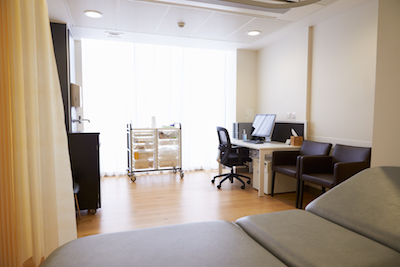
PricewaterhouseCoopers has won a $530,000 contract to develop a digital plan for rural and remote healthcare to guide the transformation of rural and remote health facilities to fully digital.
The plan is one of the elements of Queensland's digital health strategic vision 2026, the state's roadmap towards a digital health sector first released in March 2017.
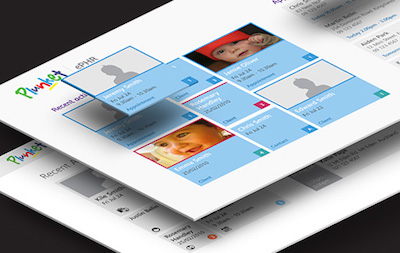
New Zealand child health organisation Plunket has launched a new video conferencing service using Zoom to provide breastfeeding support from certified lactation consultants.
Available through Plunket’s 24/7 parent helpline PlunketLine, the video conferencing service allows Plunket nurses to work directly with mothers who have been referred and provide advice as they are feeding.

Pulse+IT's weekly round-up of international health IT news for the week ending January 20: Apple Watch for at-risk seniors, HIMSS sells Analytics arm, SingHealth hack, meds rec in Scotland, Boston Children's hacker jailed, Microsoft working with Allscripts and Walgreens, VA EHR, Alberta patient portal, Birmingham patient portal
Apple is in talks with private Medicare plans about bringing its watch to at-risk seniors
CNBC ~ Christina Farr ~ 16/01/2018
Apple has previously signed a deal with insurance giants Aetna and United Healthcare about subsidizing the cost of the watch.
Definitive Healthcare acquires HIMSS Analytics’ data services
Healthcare Informatics ~ Rajiv Leventhal ~ 16/01/2019
Definitive Healthcare, a data analytics and business intelligence company, has acquired the data services business and assets of HIMSS Analytics, the organizations announced today.

Pulse+IT had a very leisurely summer holiday, thank you very much, including plenty of time for summer reading. This included perusing a stunning profile of Epic founder Judy Faulkner in the New York Times just before Christmas that we highly recommend you take a look at.
Epic's headquarters in rural Wisconsin includes a treehouse, a Humpty Dumpty sculpture and a conference room reached by way of a rickety bridge. The article itself has a fascinating profile of Ms Faulkner, who has long been of interest to the health IT industry despite flying very much under the radar of the wider industry.

Auckland primary health organisation ProCare has plumped for the cloud-based Indici as the most suitable practice management system for its needs but says it will hold off recommending it to practices until suitable commercial arrangements can be agreed with vendor Valentia Technologies.
Irish firm Valentia, which is is currently embroiled in a legal stoush with incumbent PMS vendor and NZ market leader Medtech, has now been chosen by the three largest PHOs in the North Island, having first been developed by Hamilton-based Pinnacle and chosen as preferred PMS by Wellington-based Compass in 2017.
Medtech has taken Pinnacle, its technology arm Pinnacle Ventures and support organisation Midlands Health Network to court over allegations that those three companies along with Valentia conspired to use Medtech’s advanced forms technology without authorisation.
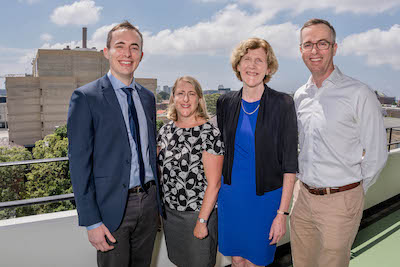
Sydney Local Health District has appointed a new CIO in Richard Taggart, previously the Australia and New Zealand industry lead in healthcare for Apple, to lead a team of specialist health information officers managing systems across its five hospitals and three community health centres.
The LHD believes it is the first public health service in Australia to appoint a full team of specialist health information officers to support its clinical information systems, including clinicians from medicine, nursing, pharmacy and allied health.

Healthdirect Australia is offering its WebRTC-based Video Call service at no charge to GPs who wish to access new telehealth MBS items to support the mental health of their patients in drought-affected communities.
The federal government introduced new items on the MBS on November 1 that allow GPs located in rural and remote regions to deliver focused psychological help to patients in drought-affected areas by video conference.
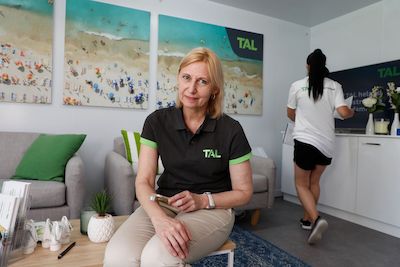
Kiwi app developer Firstcheck has teamed up with Australian life insurer TAL to offer Firstcheck's skin cancer detection service as a spot check to beachgoers this summer.
Firstcheck's app and SkinScope smartphone lens attachment can be used to send photos of skin spots and moles directly to a skin cancer doctor for assessment.

Craig Martin, the CEO of the RACGP's technology arm RACGP Oxygen, has left the company.
RACGP Oxygen was launched in 2011 with a mission to partner with industry to bring technology to general practice and promote clinical and business products and services.

More than half of Melbourne’s public hospital networks are now using technology to support staff visiting patients in the community with a duress alarm from MePACS, the personal alarm service run by Peninsula Health.
Peninsula Health has run the Mount Eliza Personal Alarm Call Service (MePACS) since 1989 and is the service provider for Personal Alert Victoria (PAV), which supports older people and people with disabilities to live independently with a 24/7 monitoring service.

The University of Sydney is planning to hold the first Australian congress of the Society for Artificial Intelligence in Medicine, Surgery and Healthcare (AMSAH) at Westmead Hospital in March.
The one-day conference will cover the technical aspects of AI, machine learning, deep learning and data science, along with practical real-world applications of AI in medicine, surgery and healthcare.

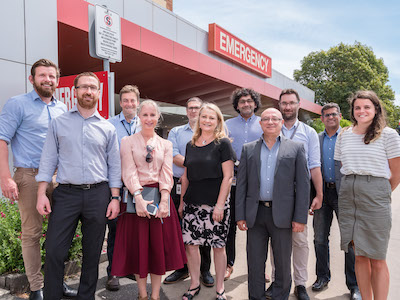
University Hospital Geelong is getting ready for the go-live of its new FirstNet emergency department information system from Cerner, which is replacing the Symphony ED system no longer supported in Australia.
The Emergency Department Information System (EDIS) project kicked off at the start of last year by mapping clinical and non-clinical workflows. FirstNet is due to go live on March 20.

Private health insurer Medibank is sponsoring a trial of the SafeMate emergency medical information system for Queensland-based Medibank customers enrolled in its CareComplete chronic disease management service.
The trial also involves Queensland Ambulance personnel, who will be able to access patients' personally entered medical information by scanning a QR code on the patient's SafeMate card with their iPads.
Paramedics are as yet unable to access patients' My Health Record, as before December 1 last year they were not registered as an AHPRA-regulated health profession.

The Health Informatics Society of Australia (HISA) has issued a call for papers for its annual Health Informatics Conference (HIC), being held this year in Melbourne in August.
This year's event will see two sub-themes for the clinical case studies section – one for primary care and one for hospitals/acute care.

The Department of Health has announced it will extend the Health Care Homes trial for a further 18 months along with a massive reduction in the number of patients who can be enrolled, down from the original target of 65,000 to 12,000.
All participating general practices and Aboriginal Community Controlled Health Services should now be using shared care planning software after that aspect of the trial was given a year-long extension in 2017.
The requirement that patients also have a My Health Record to participate was dropped last year.

HL7 International has published release 4 of its Fast Healthcare Interoperability Resources (FHIR) standard, which has finalised the base platform of the specification along with some improvements requested by developers.
FHIR, first created by Melbourne health informatician Grahame Grieve, uses contemporary web standards and a RESTful API to offer flexibility in data sharing and paves the way for interoperable health systems.
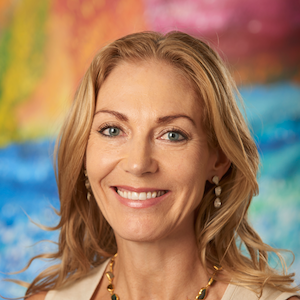
The Medical Software Industry Association (MSIA) has appointed Emma Hossack as its new chief executive officer.
Ms Hossack, the immediate past president of the organisation, will leave her position as CEO of Queensland-based medical software vendor Extensia to take on what is now a full-time role at MSIA. She has also parted ways with electronic document storage firm Binder.

Despite the furore over the My Health Record opt-out process, it was mainly some large acute care IT system implementations and tenders that took our readers' fancy this year. My Health Record certainly appeared in the top 20 most-read stories, but it was activity at Telstra Health, Queensland Health and the Victorian DHHS that dominated.
EMR-linked doctor burnout, a breakthrough in secure messaging interoperability and the Australian Digital Health Agency floating the idea of re-platforming the technology underlying the My Health Record rounded the year out, along with the adventures of some digital health movers and shakers. But as is so often the case, it was Telstra Health that took the top spot.

As the eHealth year moved into its final quarter, the interminable progress of the My Health Record towards broad coverage of the Australian population was again a lowlight. Up in Queensland, rumours were flying about the outcome of an audit into its integrated electronic medical record (ieMR), allied to suspicion over the restricted tender it issued for the long-awaited, high-profile replacement of the HBCIS patient administration system. We also had a chat to Telstra Health's Mary Foley, and looked deeper into the growing concern over the RACGP's agreement with Hello Health.

The second half of the 2018 year in eHealth got off to an absolute shocker, with bad press following social media uproar over the opt-out period for the My Health Record. ADHA's phone lines were busy in the first few days as expected, but things just continued to get worse as misinformation about the My Health Record legislation and who would have access to the system began to circulate.
Back in May, ADHA CEO Tim Kelsey had told the National Press Club that a comprehensive communications campaign was being prepared to inform the public about the system and how they could opt out if they wanted to, but few saw any sign of this as the three-month opt-out period began. It was left to the mass media to explain the initiative and apart from some notable exceptions at the ABC, that did not go well.

Pulse+IT has been covering the interesting adventures of the My Health Record week in and week out since the PCEHR was first dreamed up back in 2010-11, and twice now we have became part of the story rather than just reporting on it.
In April this year, we discovered that incorrect PBS data had again appeared on one of our records, following a similar episode in 2013. We editorialised about this issue and recommended that PBS data be removed from the system as it was very often incorrect, but it has remained. When those Australians who haven't opted out get their My Health Record created for them in February 2019, it will be interesting to see what appears.
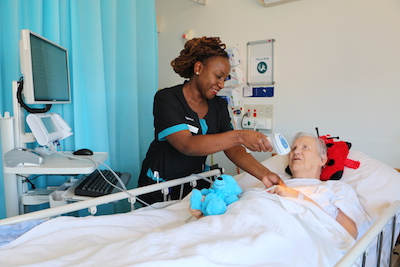
There's no doubt that the My Health Record yet again dominated the headlines during the 2018 year in eHealth, but there was loads more happening in the sector that kept us all busy. Pulse+IT has put together its now traditional four-part series reviewing the past year, with all the highlights and missteps that make this such an intriguing industry.

Problems finding a suitable IT solution to handle the $77.8 million National Bowel Screening Program (NBSP) was an ongoing saga that dogged the year in eHealth for New Zealand, with the national roll-out of the program delayed by over a year. It also had an unexpected flow-on effect on the cervical cancer screening program, with the introduction of the HPV test for cervical cancer delayed as well.
Deloitte would later be awarded a contract to handle the design phase of the National Screening Solution (NSS) but in the meantime, problems with the interim solution meant that up to 15,000 people missed out on an invitation to be screened due to the inability to track people's changes of address. An independent review of the program called by Health Minister David Clark recommended that the eventual solution should have real-time integration with GP systems.

The trials and tribulations of Orion Health as it made the tough decision to sell off the crown jewels that is its Rhapsody integration engine featured strongly on this year's list of NZ's top 20 most-read stories, with the problems besetting the National Oracle Solution and the National Screening Solution also dominating the list.
An abortive attempt by software vendors to draw the Privacy Commissioner's eye on ProCare's new database was also high on the list, as was the decision by the four Northern DHBs to go to market for a new health information platform, which has dislodged the northern EHR as the favoured way to join up information in the most populous part of the country.
There were also changes to the Ministry of Health, a change of name for the national EHR and an outline of NZ's roadmap towards health sector interoperability.

Pulse+IT's weekly round-up of international health IT news for the week ending December 16: UK Health Secretary bans NHS faxes, C- for US interoperability, NICE standards, patient portal uptake, UK electronic prescription roll-out, weak encryption for health app, hospital bed monitors heart rate, VA Health API. EMRs and doctor burnout
NHS banned from buying any more fax machines
Press Association ~ Staff writer ~ 09/12/2018
The health secretary, Matt Hancock, has banned the purchasing of fax machines in the health service from next month, and has ordered the NHS to phase out the outdated machines by 31 March 2020.

This week, Pulse+IT is so far wound down for the silly season that we are practically catatonic so rather than report something useful, we thought we'd take a look at what we pontificated upon this time last year to see if anything had changed much.
Considering our pronouncements in December 2017, when we opined that this year would be a make or break one for ADHA and the My Health Record, the answer is no.

St John Ambulance WA has developed new mobile and virtual reality technology to help train people to respond to emergencies.
Called First Aid Skills, the technology includes a virtual reality headset that guides users through training simulations for CPR, defibrillation and the DRSABCD action plan. There is also a smartphone and tablet app that delivers the same training.

Several Victorian health services have delayed the start date for uploading pathology and diagnostic imaging reports to the My Health Record until the end of the opt-out period to ensure adoption by clinicians is not lost.
And three health services that outsource pathology services to Dorevitch Pathology have had to delay their go-lives for pathology uploads as Dorevitch has not committed to proposed timelines for the implementation.

New Zealand's Health and Disability Commissioner has called for the prioritisation of the roll-out of electronic prescribing and administration systems across the health sector to help reduce the harms caused by medication error.
Commissioner Anthony Hill said he was concerned by the lack of progress in rolling out electronic medicine management systems and an electronic health record that allows a patient’s medication information to follow them through the health system.

Sunshine Coast-headquartered secure messaging vendor Medical-Objects has announced it has set up in New Zealand, working with Tauranga-based Pathlab NZ to deliver pathology results to requesting doctors.
The New Zealand secure messaging market is completely dominated by HealthLink, which also has a strong and long-term presence in Australia.
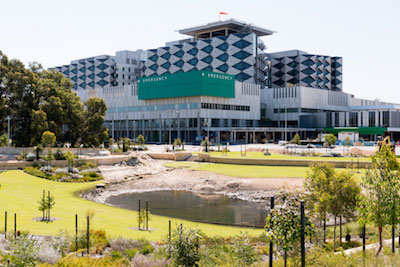
WA's Health Support Services has approached the market with a request for information on a potential solution for a statewide supply of clinical workstations.
The RFI is not a tender but HSS is looking for pricing guidance for the supply of workstations on wheels and fixed bedside terminals for its metro and country hospitals, which HSS says have very limited computing capability in close proximity to the patient.

Market-leading medical software vendor Genie Solutions has launched a new obstetrics module for its cloud-based practice management system Gentu, working with obstetric and gynaecology specialists to co-design the module for their needs.
The module harnesses the power of the cloud to allow O&G specialists to access their data anywhere and at any time, including in their work across private and public care settings.
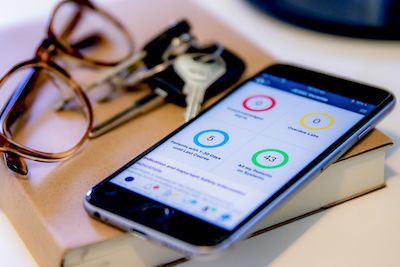
Sydney-based start-up firm RxMx will migrate its patient monitoring solutions to InterSystems' IRIS for Health data platform, which has been engineered specifically for healthcare.
RxMx already uses InterSystems technology to help build and deploy its automated patient monitoring system, which is aimed at complex medicines that require laboratory testing for potential adverse effects.

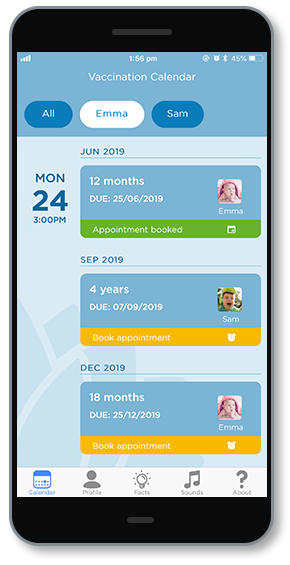
NSW Health has updated its Save the Date to Vaccinate app, which provides a schedule of childhood immunisations and sends alerts to parents when a shot is due.
First launched in 2013 to back up the state's vaccination campaign, the app has been redesigned and contains new features, including the July 2018 NSW immunisation schedule and the ability to see the whole family's vaccinations in one view.

Pulse+IT's weekly round-up of international health IT news for the week ending December 9: Shadow rulers of VA's EHR, CommonWell-Carequality connection, EMIS-X to share live GP data, Mass General and blockchain, phishing menace, IT glitch misses results, telehealth use low, patients opt in for test results, ResMed buys Propeller Health, info blocking decreasing
VA shadow rulers had sway over contracting and budgeting
ProPublica ~ Isaac Arnsdorf ~ 03/12/2018
Newly released emails about the three Trump associates who secretly steered the Department of Veterans Affairs show how deeply the trio was involved in some of the agency’s most consequential matters, most notably a multibillion-dollar effort to overhaul electronic health records for millions of veterans
KLAS: EHR vendors making significant progress with CommonWell, Carequality connection
Healthcare Informatics ~ Heather Landl ~ 04/12/2018
With the establishment of connectivity between CommonWell and Carequality, announced back in August, as well as other interoperability advancements by electronic health record (EHR) vendors, the ability to exchange patient records is within the reach of most acute care or clinic-based provider organizations, regardless of size or financial situation

It seems like just last month that we were taking a close look at the roll-out of the Cerner integrated electronic medical record (ieMR) in Queensland (and what do you know, it was) but we were still keen when a large report on the system by the state's auditor-general thumped down on our table this week, figuratively speaking.
The main headlines following the report's release were about a probable blowout in the budget for the system, estimated at $1.2 billion in total since it began in 2011 until its expected conclusion in 2025, mainly due to extra resources being required by individual HHSs. We've reported on this in the past.
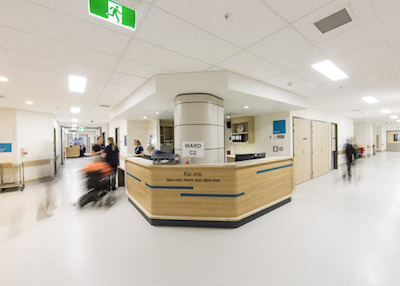
A team of five full-time Orion Health employees will be assigned to work specifically on priorities set by the South Island Alliance of district health boards as part of a new strategic partnership the two organisations have signed.
Auckland-based vendor Orion Health already provides a substantial portion of the clinical software and technology underlying the five South Island DHBs' infrastructure, including the HealthOne shared primary care record, the Health Connect South secondary care clinical portal and the new South Island Patient Information Care System (SI PICS) it is building to replace a number of patient administration systems.
Copyright © 2025 Pulse IT Communications Pty Ltd. No content published on this website can be reproduced by any person for any reason without the prior written permission of the publisher. If your organisation is featured in a Pulse+IT article you can purchase the permission to reproduce the article here.
Website Design by Get Leads AU.